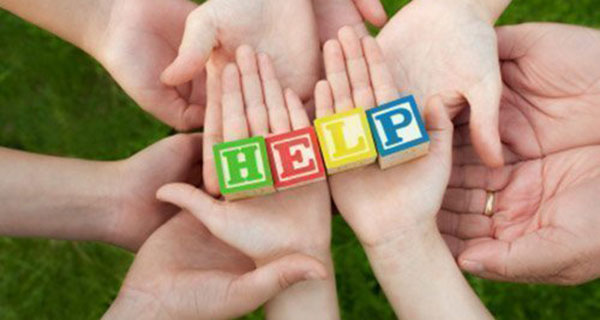 Canada’s 8.1 million natural caregivers frequently hear their friends, family, neighbours and co-workers say, “Don’t hesitate to let me know if there is anything I can do to help.”
Canada’s 8.1 million natural caregivers frequently hear their friends, family, neighbours and co-workers say, “Don’t hesitate to let me know if there is anything I can do to help.”
The automatic verbal response from the caregiver if often a grateful, “Sure, will do.”
But that rarely happens. Instead there’s hesitance, reluctance or even a refusal on the part of many caregivers to reach out, ask for and accept help.
While our natural call to care for those we love creates meaningful and rewarding experiences, it can also lead to exhaustion, isolation and burnout. A central question for caregivers is how to sustain their caring over time without sacrificing their health and spirit. A big part of the answer lies in welcoming the contributions of others.
The practical assistance, emotional support, and thoughtful suggestions that family and friends can contribute are critical resources for caregivers along the caring journey.
Yet natural caregivers can be reluctant to accept these offerings. There are many things that contribute to this reluctance. Some are rooted in the caregiver’s own mindset. Chief among the many reasons is our belief that caring for our aging parent or ill family member is our filial duty and no one else’s. Besides, we don’t want to burden others.
We tell ourselves that no one can provide care for our loved the way we do or that we prefer that things be done our way.
We might even feel guilty at the thought of others helping because it must mean we’re not managing well.
There are also powerful cultural norms that underpin our hesitation to ask for or accept the help of others. We live in a do-it-yourself society that fiercely values independence and is built on myths of individual heroism and self reliance. We dread being seen as needy in spite of our inevitable, completely natural and universal interdependence.
If we have the financial resources, many of us seek first to buy or hire the care that’s needed. That way, we think we can avoid being dependent on anyone else and believe we can stay in charge without ever having to ask anyone for anything.
Certainly hired caregivers are valuable and often crucial in supporting our loved one. But natural carers, those closest to the person, are the ones who care over time. We strive to bring recovery, stability and predictability to those we love.
But in an instant things like an accidental fall, a case of the flu or a reaction to a medication can bring dramatic changes in what the present and the future look like. In this way, natural caring is always a work in progress. It means we need to be responsive, adaptive and creative.
To do this well, we will inevitably need the support of others.
There’s no question it can be a challenge to ask for help when we’re already feeling worn and vulnerable.
So make a list of tasks, considering which you really want to do and which would be easiest to ask others to do. Be as specific as you can when making a request. Others often don’t know what to do and are most relieved to be given or assigned something.
Using a calendar to create a schedule with clear duties that people can sign up to is helpful. There are also a number of specialized online tools freely available that help to co-ordinate care duties and tasks.
When it comes to caring, asking for and accepting help are brave acts that show strength. This is how we can build our stamina and strengthen our resilience to be there for the long haul.
Each time we reach out to others or simply say yes to the offers of help from our family, friends, neighbours and co-workers, we’re creating an opening. That opening cultivates connection, compassion and empathy in the lives of those who want to help and those we’re caring for.
Without hesitation, that’s something worth asking for.
© Troy Media
The views, opinions and positions expressed by columnists and contributors are the author’s alone. They do not inherently or expressly reflect the views, opinions and/or positions of our publication.


